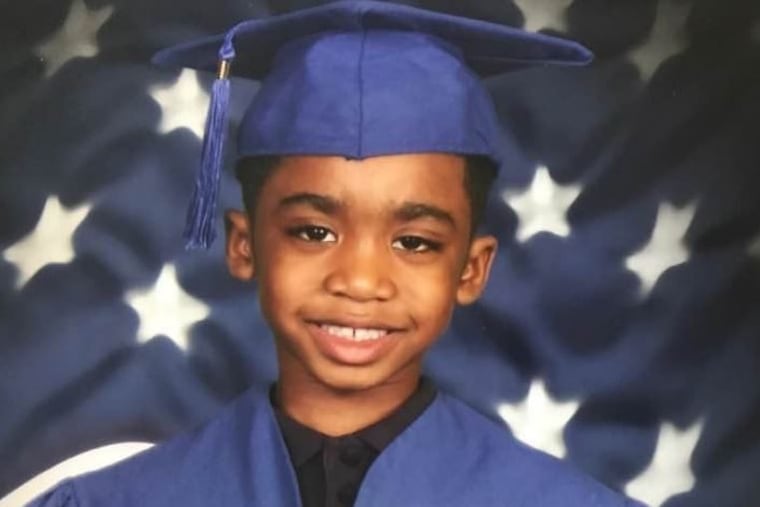Suit: A federal jail in Philly is stopping kids from seeing their dads
A proposed class-action lawsuit filed Thursday in Philadelphia's federal court on behalf of Allen Woods and other inmates called the policy "cruel and unconstitutional."

When Allen Woods' son turned 6 recently, Woods couldn't wish him a happy birthday in person, give him a hug, or marvel at how tall he'd grown. He had to send a card in the mail.
That's because Woods — who has been awaiting trial at the Federal Detention Center in Philadelphia on marijuana-dealing charges for the last 15 months — is up against a strict visitation policy the FDC put in place in July 2016, barring all visitors but immediate family. Since Woods is not married to son Daylan's mother, Chamira Williams, she was no longer allowed to bring the boy to visit. (Unaccompanied minors also are not permitted.)
A proposed class-action lawsuit filed Thursday in federal court on behalf of Woods and other inmates called the policy "cruel and unconstitutional," and "among the most draconian in the federal system."
Dana Bazelon, a Philadelphia lawyer who filed the suit with the Public Interest Law Center and Drinker Biddle, said that since virtually none of her clients are married, the policy has been tearing families apart.
"Not being able to see their kids is really devastating to these men, and obviously runs counter to everything we know about how we rehabilitate someone: Strong contact with the community is really crucial," Bazelon said. "For the children, that contact is really important, so you don't feel like you've just been abandoned. It's not something you can do over the phone or over email with a little kid."
The policy affects only pretrial inmates, who account for about 900 of the 1,000 inmates at FDC. But Ben Geffen, of the Public Interest Law Center, noted that many of those inmates can remain incarcerated for months or years, and some will eventually be acquitted.
The detention center's spokesman, Michael Carroll, said the policy change was necessary to stem the flow of illegal drugs through the visiting room. He said exceptions are made case by case, but he would not say how many exceptions had been made. Bazelon said some of her clients have applied for exceptions, but none were successful.
Dayna Walter, 29, a dental assistant who described her own criminal history as "a speeding ticket, once," was among those denied.
Walter had sought to bring her 2-year-old son to visit his father — her boyfriend of 10 years, Keith Campbell, who is charged with kidnapping a man in the course of a robbery. The family has not been able to see Campbell since he was transferred to FDC in April.
Between the visiting policy and limited phone minutes — Campbell is allotted 200 minutes per month — she said maintaining the father-son bond is a constant concern.
"I worry about that almost every day," she said. "When you're far away from someone and can't visit, it puts a strain on everything. You rely a lot on love and hope to get you through. You keep pictures around of him, so his son can see his face and recognize who he is when he's talking on the phone."
Marie Gottschalk, a University of Pennsylvania political scientist and author of the 2014 book Caught: The Prison State and the Lockdown of American Politics, said that the courts have typically given prisons wide berth to adopt restrictive policies in the name of security.
"There's a broader trend across the country of making it more difficult to visit people who are incarcerated," she said. "We're seeing greater use of videotaping rather than letting people come visit. It's part of dehumanizing people in prison. It's also making their reentry much more difficult."
That's not to mention the impact on children. Having an incarcerated parent, she said, is linked with mental health problems, behavioral issues and depression in particular.
"Many times, people think, the person in prison committed a crime, so it's better for the kid to be away. But what we've found for most kids is, unless there was abuse against a parent or the child, it's very helpful for the parent to be able to see the child. Denying that contact on top of the issues the child is already facing is going to make those issues even more severe."
Bazelon said she first sought to change the policy without litigation, and believed it would be simple for the FDC to address if administrators there chose to do so.
Instead, Carroll said, the FDC is offering its own fix for those who accept it.
"One thing we did do recently is allow inmates to get married," on FDC wedding days that take place every six months, the spokesman said. He would not say how many couples had taken advantage of that offer so that fathers and their children could be reunited.